
Richard Edgcumbe, 1st Baron Edgcumbe, of Mount Edgcumbe in Cornwall, was an English Whig politician who sat in the English and British House of Commons from 1701 until 1742 when he was raised to the peerage as Baron Edgcumbe. He is memorialised by Edgecombe County, North Carolina.
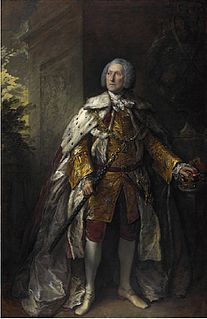
General John Campbell, 4th Duke of Argyll KT PC, was a British Army officer and Scottish Whig politician who sat in the House of Commons between 1713 and 1761. From 1729 to 1761 he was known as John Campbell of Mamore.
Lieutenant-General Harry Mordaunt was an English Army officer and Whig politician who sat in the English and British House of Commons between 1692 and 1720.

Henry Newport, 3rd Earl of Bradford was an English peer and Whig politician who sat in the House of Commons between 1706 and 1722.
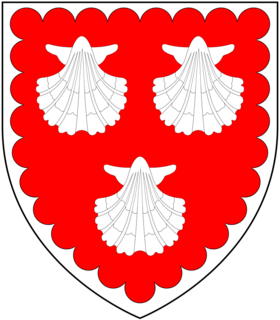
Lieutenant-General Thomas Erle PC of Charborough, Dorset, was a general in the English Army and, thereafter, the British Army. He was also a Whig politician who sat in the House of Commons of England and of Great Britain from 1678 to 1718. He was Governor of Portsmouth and a Lieutenant-General of the Ordnance.
Edward Winnington or Jeffreys, of Ham Castle, Droitwich, was an English lawyer, judge and Tory politician who sat in the House of Commons from 1708 to 1725. He was considered the most powerful advocate on the Oxford circuit of his time.
Sir Henry Oxenden, 4th Baronet was an English Whig politician who sat in the House of Commons from 1713 to 1720.
Henry Holmes of Thorley, Yarmouth, Isle of Wight, was an Anglo-Irish Army officer, landowner and Tory politician who was Lieutenant-Governor of the Isle of Wight (1710–14) and sat in the English and British House of Commons from 1695 to 1717.

Sir William Courtenay, 2nd Baronet of Powderham Castle, Powderham, Devon, was an English landowner, a leading member of the Devonshire gentry and Tory politician who sat in the English House of Commons from 1701 to 1707 and in the British House of Commons almost continually from 1707 to 1735.
Samuel Shepheard (1677–1748), of Exning, Suffolk, near Newmarket, Cambridgeshire, was an English Tory politician who sat in the English House of Commons in 1701 and in the British House of Commons almost continually for forty years from 1708 to 1748.
Henry Fleetwood of Penwortham, near Preston, Lancashire, was an English soldier and Tory politician who sat in the House of Commons from 1708 to 1722.
Richard Sutton, of Scofton, Nottinghamshire, was British Army officer who fought in the War of Spanish Succession, and a politician who sat in the House of Commons between 1708 and 1737. He was primarily a Whig, but on occasion voted as a Tory.
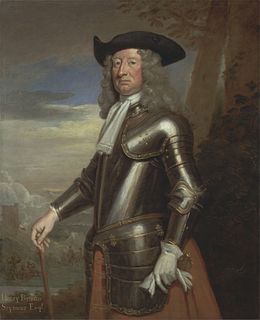
Henry Seymour later Portman, of Orchard Portman, Somerset, was an English politician who sat in the House of Commons of England and then Great Britain almost continually between 1679 and 1715.
Lieutenant-Colonel Henry Worsley, of Compton, Hampshire, was an English Army officer, diplomat and politician who sat in the English and British House of Commons from 1705 to 1715, initially as a Whig, and later as a Tory. He was ambassador to Portugal from 1714 to 1722 and Governor of Barbados from 1722 to 1731.
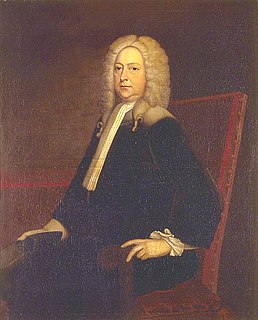
Francis Drewe, of the Grange, Broadhembury, Devon, was a British lawyer and Tory politician who sat in the House of Commons from 1713 to 1734.

Sir Willoughby Hickman, 3rd Baronet (1659–1720) of Gainsborough Old Hall, Lincolnshire was a British landowner and politician who sat in the English House of Commons between 1685 and 1706 and in the British House of Commons from 1713 to 1720.
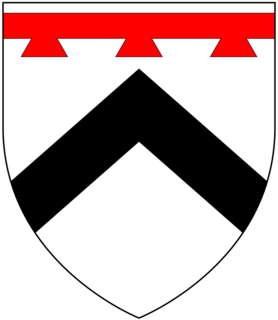
Sir Edmund Prideaux, 4th Baronet (1647–1720), of Netherton, Farway was a British lawyer and politician who sat in the House of Commons from 1713 to 1720.
George Trenchard, of Lytchett Matravers, near Poole, Dorset, was a British landowner and Whig politician who sat in the House of Commons for 35 years between 1713 and 1754.

Edward Rolt of Sacombe Park, Hertfordshire, Harrowby Hall, Lincolnshire and Spye Park, near Chippenham, Wiltshire, was a British landowner and Tory politician who sat in the House of Commons from 1713 to 1722.

William Northmore (1690–1735), of Northmore House, Okehampton and Cleve, near Exeter, Devon, was a British landowner and Tory politician who sat in the House of Commons between 1713 and 1735.











